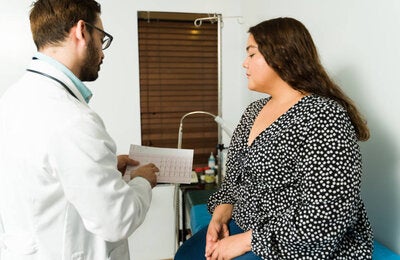Health Research Web-Americas facilitates effective participation in and management of national health research systems
Geneva-Washington DC, 3 August, 2010 — The Pan American Health Organization (PAHO) and the Council on Health Research for Development (COHRED) today launched a new "Americas" regional component of HRWeb, a global website that provides information and tools to help countries and individuals more effectively manage and participate in national health research systems.
The website's new Americas section, HRWeb-Americas, provides information at the regional and country levels on health research policies, priorities, institutions, projects, publications, regulation, and ethics, as well as links to additional information resources.
The easy-to-access website is designed for use by managers of research, researchers, government officials, members of civil society, the media and others who need access to practical information, documents and data, and a place to exchange information.
HRWeb-Americas has a database component through which governments can post and manage official information (through designated officers) as well as a 'Wiki' function that enables users to add and update information (available for other regions as well).
HRWeb-Americas is expected to evolve through continual updates driven by users and their needs.
"Our aim is to have a growing information resource in place on national health research systems for the Americas by the end of 2010," said Prof. Carel IJsselmuiden, Director of COHRED. "It will be supported by a network of focal points —at the country and regional levels— who will keep the information up to date."
PAHO is participating in the HRWeb platform as part of its efforts to support improvements in and learning about health research in the Region of the Americas.
"HRWeb provides a one-stop shop to improve understanding of national health research systems, advance actions to implement PAHO's policy on research for health, especially its governance component, and help countries improve their research skills, the relevance of their research, and their access to vital information," said Luis Gabriel Cuervo, PAHO Senior Advisor on Research for Health.
Over the past several years, countries in the Americas have worked to strengthen their national health research systems (NHRS) and have recognized that a 'systems approach' — based on policies, priorities and management structures — best supports the population's needs.
Dr. Francisco Becerra, COHRED's Head of Project and Programmes, based in Mexico, said that HRWeb-Americas has great potential as a new source for improved analysis of and cooperation in health research in the region. "As the platform develops, we will conduct analyses and encourage collaboration between countries, for example, for priority setting, where methods for effective priority-setting activities can be tested and shared between countries."
HRWeb-Americas is the result of a partnership between the PAHO and COHRED formalized last October, which seeks to help countries in the Americas improve their management of research for health, facilitate learning between countries, and strengthen the role and leadership of research authorities (see www.healthresearchweb.org).
The Pan American Health Organization (PAHO) is the oldest international public health agency with over 107 years of experience working to improve health and living standards of people in the Americas. PAHO is a member of the United Nations and Inter-American systems, and its headquarters serves as the Regional Office for the Americas of the World Health Organization (WHO).
For more information about PAHO's Policy on Research for Health write to RP@paho.org or visit www.paho.org/ResearchPortal.
COHRED is an international nongovernmental organization that supports countries to strengthen their health research systems. COHRED supports countries to use health research to:
- Improve health and reduce health inequities
- Improve health sector performance and accountability
- Encourage donor alignment and harmonization
- Link health research with science, technology and innovation
- Generate economic and social prosperity



